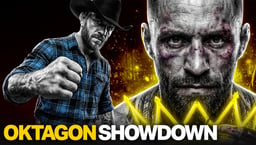
Issue 070
December 2010
At 19 Vitor Belfort set a record for the youngest man to win inside the Octagon. Now 33, after years in the wilderness, MMA’s prodigal son is back and spitting out elite opponents. Will ‘The Phenom’ beat Anderson Silva and claim his destiny as middleweight champion?
For as long as he can remember, Vitor Belfort says he’s displayed a potent knack for visualization. A devout Christian, Belfort believes that God blesses every human with certain abilities when they are born. The veteran UFC fighter has always known that clarity is what God chose for him. “Even when I was a kid, I was very visionary,” Belfort said. “I think people have gifts. Some people can draw beautiful pictures. Some people have ideas. I think I have vision.” Belfort says his gift from God was clearly at work in 1989 when, at 12 years old and living in Rio de Janeiro, Brazil, he told his father that mixed martial arts would catch the world’s attention someday. His father was supportive in anything that made Belfort happy, but he didn’t share his son’s vision that day. Place your dreams in something else, he told him. There is no future in fighting. “He would tell me that the sport wasn’t established yet,” Belfort says. “I told him that someday it would be. He said, ‘Vitor, forget it. Those guys have nothing. Look at the top guys. They’re living with their parents.’” Just a young boy, Belfort shook his head at his father and told him that wouldn’t be the case forever. “I told him, ‘Dad, I can be one of the first guys that makes history in the sport.’”
He certainly will if, early in 2011, Vitor Belfort becomes the first man to beat Anderson Silva within the UFC.
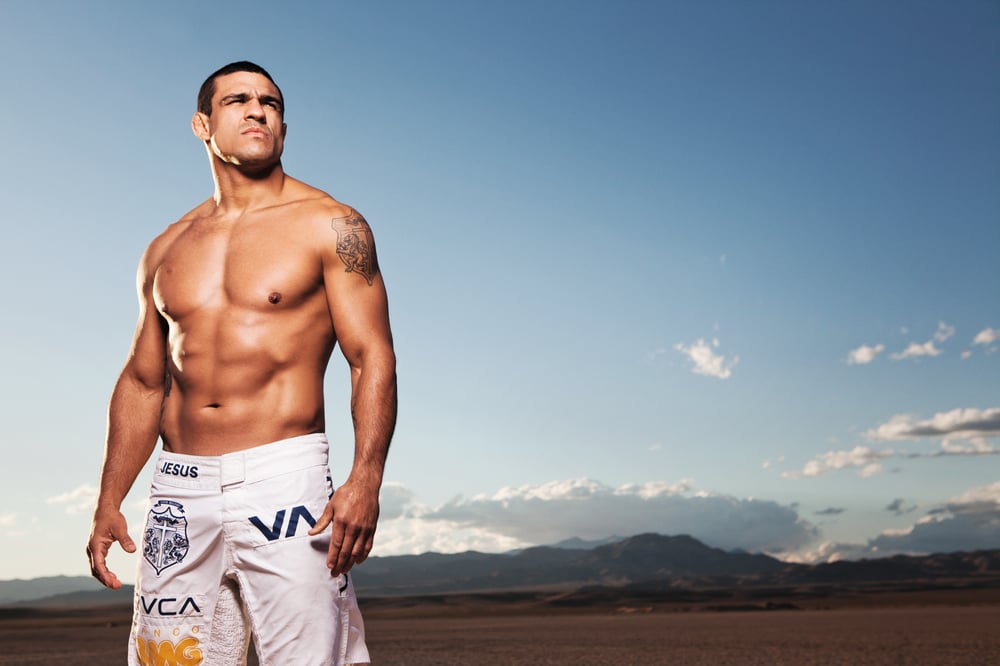
Belfort’s MMA journey officially began two years later aged 14, when he was introduced to Carlson Gracie, a member of the legendary Gracie family who are widely considered the developers of Brazilian jiu-jitsu. It was Carlson who taught Belfort the art of grappling and told him again and again his own vision of what his young student would become: a champion. But for as much respect as Belfort grew to have for his mentor, it didn’t prevent him from keeping his own dreams. While Gracie was focused on turning Belfort into a grappling ace and a Brazilian vale tudo star, the pupil hadn’t given up on his belief that mixed martial arts would be his final destination. And so, behind Gracie’s back, Belfort attended boxing lessons and began lifting weights at the age of 15, both of which he remembers his mentor was opposed to. “Back in that time, it was one martial art against another,” Belfort said. “But I was a visionary and I knew that MMA would be more popular than all of them. It was just a matter of getting the right skills and right people around me to take advantage of it someday.”
That day would come four years later when, at the age of 19, Belfort made his professional mixed martial arts debut against American heavyweight Jon Hess on October 11, 1996 in Honolulu, Hawaii. His early studies of the different martial arts and his ability to combine them into one form immediately placed him well ahead of the game. Despite the fact Belfort would be facing opponents nearly twice his age, his father said his son’s skills made it easier for his family not to worry about him. “I was kind of worried about it,” his father tells Fighters Only, on Belfort competing at a young age. “But I always trusted his technique and his abilities. As a father, I was worried for my son every time he was out there. But I had a lot of trust in his talent.” It took Belfort 12 seconds to knock out Hess that night in 1996 and less than a year to earn the nickname, ‘Phenom’.
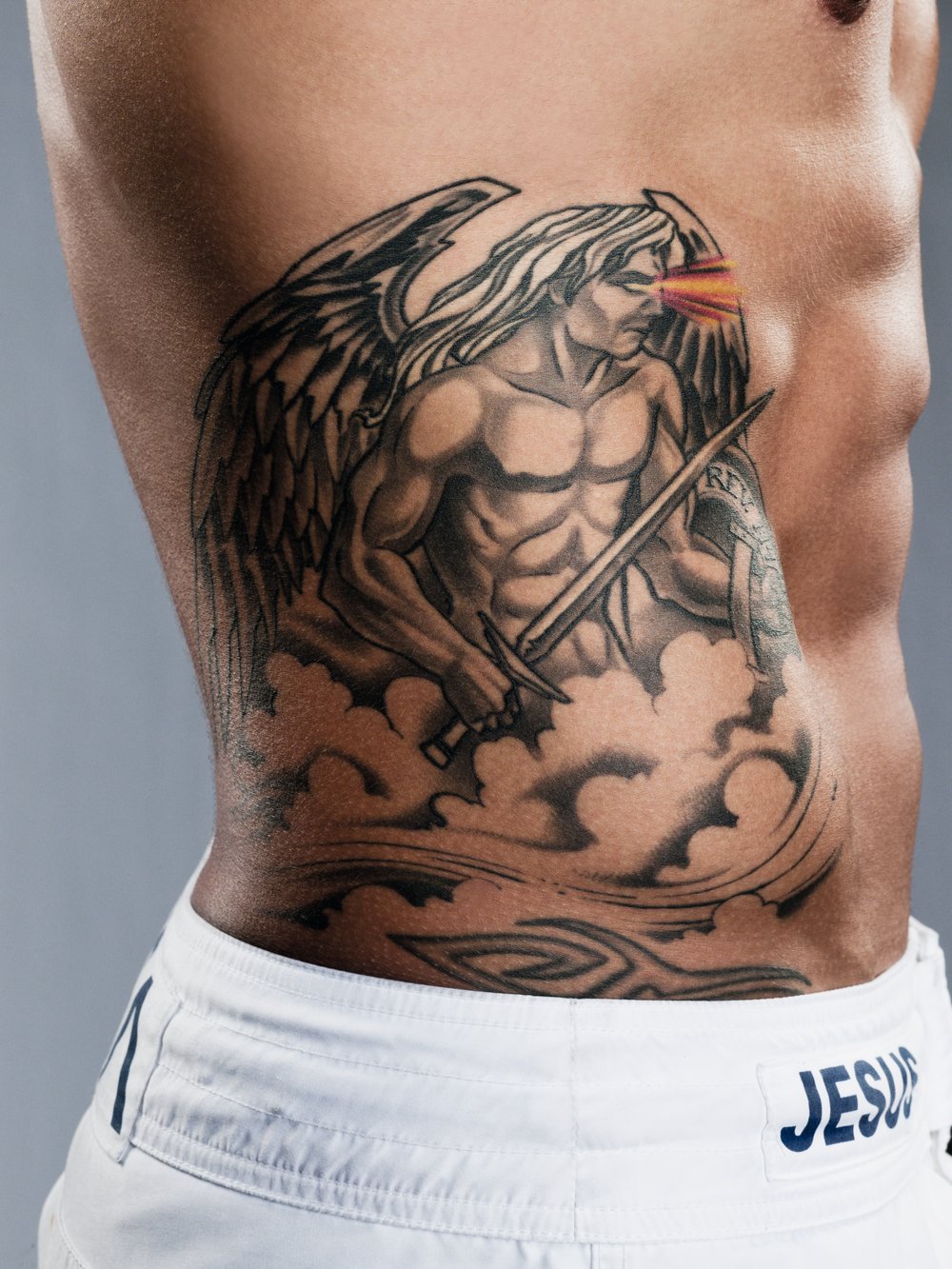
The 19-year-old prospect from Brazil quickly caught the eye of the UFC and just four months after his professional debut, Belfort was scheduled to appear in the company’s heavyweight tournament at UFC 12 in February 1997. Mixed martial arts had already taken steps to meeting Belfort’s expectation of becoming a legitimate sport, but it still had a long way to go. He’d be reminded of that when his UFC debut was marred by one of the more infamous stories in the company’s history. The UFC 12 event was originally set to take place in Niagra Falls, NY. Days before the show was to take place a public outcry fueled by stories in the New York Times persuaded the state assembly to rewrite its laws on the sport. The changes that were made effectively canceled the event on several days notice. In order to preserve the pay-per-view, UFC officials chartered a plane to transport the fighters, including Belfort, to a new location in Dothan, Alabama, the night before the show. Despite the hassle of traveling the night before he was set to fight, Belfort remembers having little to complain about. His dream of competing on a large-scale card was about to come true and he was on the same plane as some of the top fighters in the world. One of them even took the time to chat with the rookie. “I was thinking about how everyone was in his thirties and I was 19,” Belfort said. “I was sitting next to Mark Coleman, who was fighting Dan Severn in that show, and he said to me, ‘I heard you’re a tough kid.’ After that, I started thinking to myself I was in the middle of the fire.”
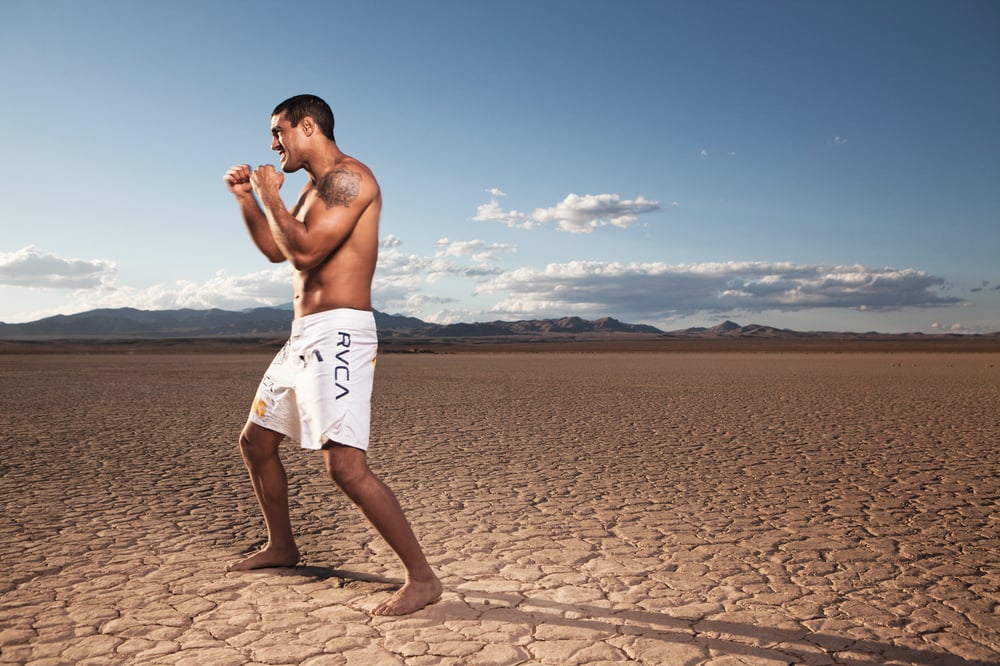
Belfort would win twice that night at UFC 12, finishing both his opponents during the first round in what added up to a total of two minutes of work. By the time he posted a 52-second win over the popular Tank Abbott in May 1997, Belfort was considered the hottest prospect in the sport and surely on his way to a superstar career. That, at least, was the aura he took into his next fight when he met a 34-year-old wrestler by the name of Randy Couture at UFC 15. Belfort entered the fight a clear favorite, a fact that appeared not to be lost on him when he waited in his trailer outside the venue long after being called to make his way to the cage, where Couture was already waiting. The situation prompted many of those watching, including the announcers calling the fight, to assume the young Belfort was ‘icing’ his opponent, forcing Couture to stand in front of the crowd and allow nerves to sink in. In reality, Belfort says his trailer door remained shut to hide the fact he was incredibly sick. “When I fought Randy I had a disease,” Belfort said. “It was a worm living inside me. I had it for almost six months. I didn’t have health insurance at the time. I was going to the bathroom 20 times a day. When they called me out, I was going to the bathroom. I had a very important fight and that’s what I was dealing with. And I was wearing a cup, shorts and a gi. So, I had to take all that off and put it all back on every time I went to the bathroom.” Belfort eventually emerged from his trailer and walked to the cage for what would be the first defeat of his career.
He says he’s refrained from ever telling the story of his illness to media so as not to take anything away from Couture’s performance that night. Belfort came out as he had in his previous fights, applying pressure and looking for an early finish. Couture neutralized Belfort’s offense with his own stand-up, however, keeping him in the clinch and physically wearing him down. The bout ended just past the ten-minute mark, when Couture put Belfort on the mat and pounded his way to a TKO win. By the time the fight was over, Belfort appeared exhausted and made it back to his trailer only with assistance from his team. He looked like a young kid who had just learned a valuable lesson from a wise opponent – which, he says, is exactly what happened. “He fought great and he came prepared,” Belfort says. “He taught me a lesson. I wasn’t respectful of Randy. I was overconfident.”
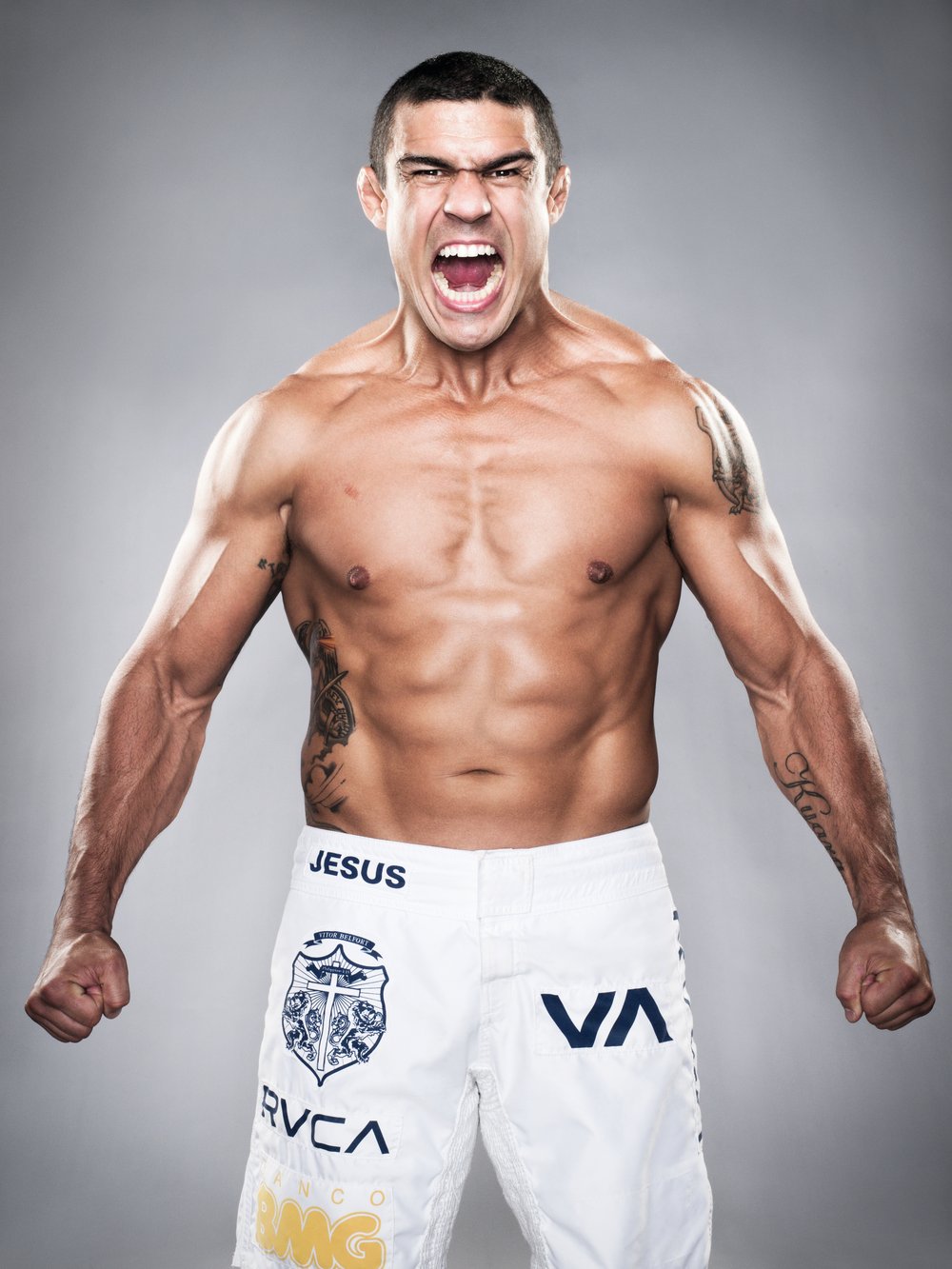
The Phenom was far from calling it quits following the first loss of his career, and he responded by posting six wins in his next seven fights. He dropped a decision loss to the highly respected Kazushi Sakuraba in his first fight under the Pride organization in 1999, but finished out his contract with four straight victories. Belfort rejoined the UFC in 2002 and once again found himself in a position to rise to the top of the sport. Despite dropping a unanimous decision loss to Chuck Liddell in his first fight back in the organization, Belfort scored a first-round TKO win over Marvin Eastman the following year to earn a shot at the light heavyweight title against his old foe Couture in early 2004. That year had all the makings to be one of the best in the 26-year-old’s life. The sport of mixed martial arts was gaining momentum and he had become a key player in its success, just as he had envisioned as a boy. Belfort was in a position to steal the belt from the first man to beat him and possibly hold on to it for a long time. But God, as Belfort would put it, had other plans.
In January 2004, Belfort received word that his older sister, Priscila, had gone missing in Brazil and was presumed kidnapped. He was devastated. The two siblings had been close, as most are, but their father remembers there being an extra connection between them. “They played together all the time, but they were also always looking out for each other,” his father says. “They were in unity. When she would get a boyfriend, I would always say to Vitor, ‘Hey, watch out for your sister. Let me know if this guy is good for her.’” With the search for Priscila ongoing in Brazil, Belfort trekked to Las Vegas for his title fight against Couture on January 31, 2004. He considered pulling out of the fight, but the family convinced him there was nothing he could do but allow the police to do their job and he knew that, in the meantime, he still wanted to provide for them. The second fight with Couture lasted 49 seconds. Belfort sliced open Couture’s left eyelid with the seam of his glove and the fight was stopped. He was the light heavyweight champion.

Returning to Brazil shortly after, weeks and months began to go by with no word on his sister’s whereabouts. As the chance of finding his sister alive grew slim, Belfort found himself searching for answers. He maintained a constant communication with Brazilian police, but rarely could they provide him with new information on Priscila’s case. The only question left on Belfort’s mind was posed to God. “It was a hard feeling for me,” Belfort said. “I would think, ‘Why me? What did I do wrong?’ I remember my father would say the same thing, ‘I’m not a bad person.’ I think every man that lives asks that question at some time.” Eventually, the case on Priscila was closed. Brazilian officials arrested the people believed responsible for her abduction and details of the kidnapping were finally brought to light in 2007. An Elaine Pavia, 27 at the time, made the admission that she had kidnapped Priscila and eventually murdered Belfort’s sister without attempting ransom demands. As answers regarding his sister’s case finally came, years after she disappeared, Belfort struggled with a conflict between his need for justice for this disgusting crime and his Christian beliefs. At first, he remembers feeling only anger and the need for recompense in his heart. But after years of suffering, Belfort says that God contacted him in the same visionary manner he has used to speak with him his entire life. “I had a very hard dream one day,” Belfort said. “God was in the dream and told me if I wanted justice, I had to forgive. I woke up and said, ‘God, why do you want me to forgive these people?’ And he answered, ‘The more you forgive, the better you live.’ I realized then that it’s not, ‘Why did this happen to me?’ It’s, ‘How can I deal with this?’”
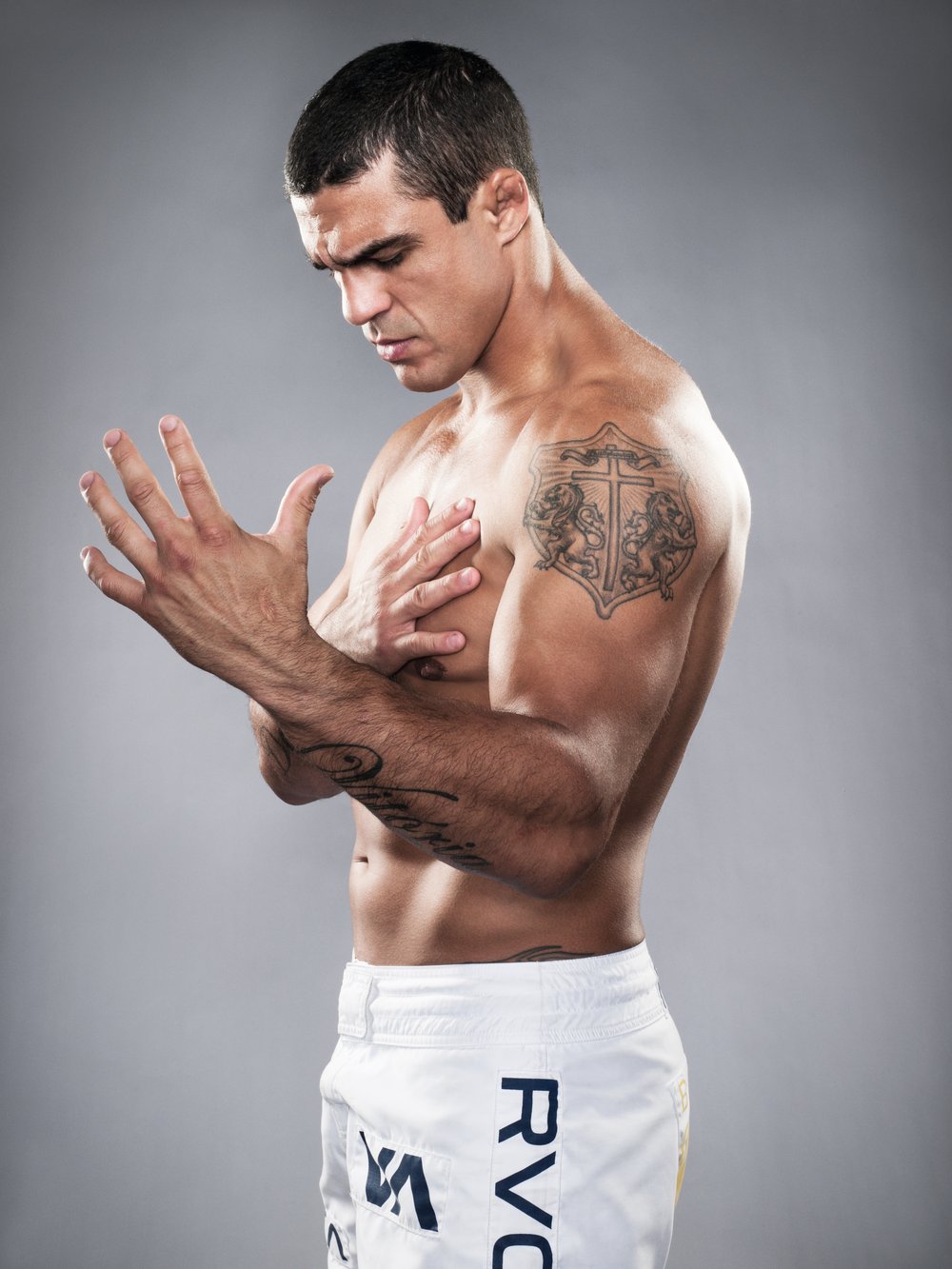
Belfort has since found peace. He says his life is happier than ever before. And the experience of what happened to his sister has given him a real relationship with God. After struggling through a stretch in his career in which he lost five of seven fights from August 2004 to October 2006, Belfort hasn’t lost in years. He’s a perfect 5-0 in his last five bouts, including a 37-second KO of Matt ‘The Law’ Lindland at Affliction: Day of Reckoning. His personal and professional lives are at arguably the best they’ve ever been. In February, he underwent a long-overdue surgery to repair a torn labrum in his left shoulder and says he’s working out 100% pain-free for the first time in two years. Just this summer, he picked up his family and moved them from Brazil to his training grounds of Las Vegas so they would be near him during camps. In his most recent fight last November at UFC 103, Belfort delivered a performance reminiscent of early in his career, dominating Rich Franklin in a first-round TKO victory. Showing off the power that made him a fan favorite when he was 19, Belfort needed only a glancing straight punch to put Franklin in trouble. The result earned him a shot at middleweight champion Anderson Silva, which he’ll finally receive in early 2011. The matchup between the two Brazilians had been previously scheduled for three different events, all of which were eventually postponed due to injuries. There has been some talk that Belfort is undeserving of a title shot, as he’s fought only once in the UFC since 2006 and never in the 185lb division. His win over Franklin came at a catchweight of 195lb. Those claims have been largely ignored by Belfort’s camp. At the end of the day, they believe they have a superior fighter over Silva, which won’t change with the subtraction or addition of 10lb. “Is it that Vitor doesn’t deserve a shot at the belt or is it Vitor might be the guy that can beat Anderson Silva?” says head trainer Shawn Tompkins. “Vitor has definitely proven himself. He hasn’t been in the middleweight division in the UFC, but he has in other shows and he’s proven himself there.”
Despite the fact some believe Belfort’s shot is coming early, there are nearly as many who consider him the greatest danger to Silva’s perfect record in the UFC. His aggressive striking style could match up well against Silva, who likes to set up his range and come ‘in and out’ on opponents. In his last title defense, Silva had trouble with the forward approach of wrestler Chael Sonnen before managing to win the fight via submission off his back in the final round. Although Sonnen and Belfort bring two very different types of aggression to the cage, Tompkins believes both are the answer to Silva’s unbeatable record. “Chael and Vitor are two totally different fighters, but we’ve always thought the way to beat a guy like Anderson Silva is to bully him,” Tompkins says. “[Silva] is a bully fighter.
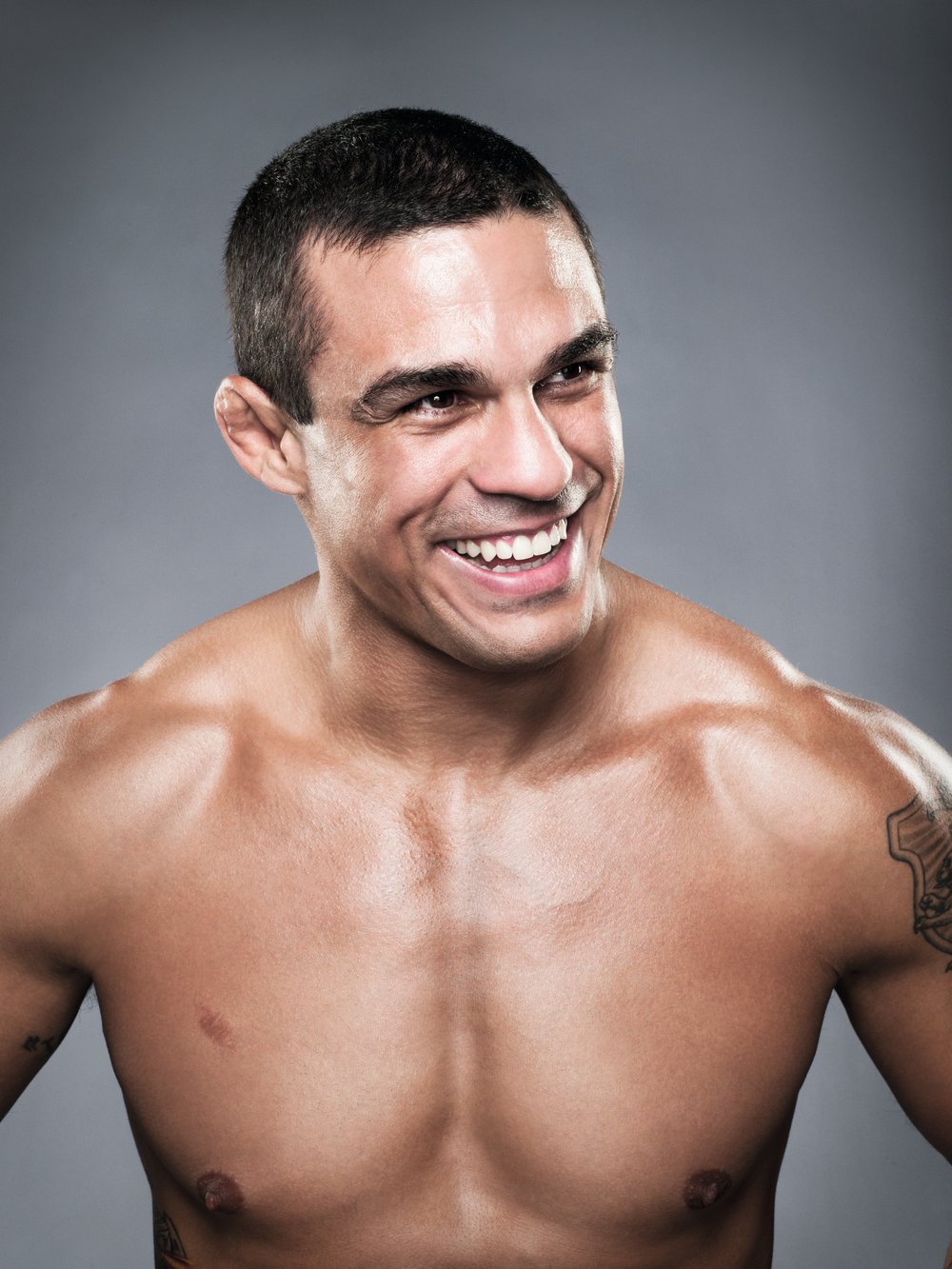
He counts on people to give him too much respect. We’ve known all along we want to be in his face and make him fight, much like Chael did. Bottom line, I think that Vitor is not going to show the respect to Anderson Silva that most fighters have. And I can’t help but think he’s never dealt with anybody on the striking level that Vitor has.”
Belfort is prepared to go at Silva with everything he possesses, but he’s quick to point out that his happiness that night will not rely on the outcome of the fight. His life, Belfort says, has taught him that contentment is a choice. Things happen that are beyond anyone’s control and it’s each individual’s decision on how to accept what God has planned. The sooner one realizes that, the happier one’s existence becomes. Relaying that message and others like it to his fans is what’s become Belfort’s primary goal. He believes the gift God bestowed allows him to not only look ahead with more vision than others, but also behind. He’s learned so many lessons during his 33 years on this earth. He admits it would take an entire book to list all the regret inside of him. His desire to teach those willing to listen about his life doesn’t mean he’s against people finding their own way – he’s just that confident his message is worth listening to. He laughs and shakes his head when looking back on the days before that first UFC show in 1997. He remembers his 19-year-old self, sitting down and penning out a hand-written letter to God before weighing-in. “It said, ‘God, I’m here. If you let me win this, I’ll never give up on you,’” Belfort says. “I was so selfish. And the bad news is that I gave up on God so many times after that fight. A relationship with God is not about asking and taking things.” When it comes to Belfort’s vision on the rest of his fighting career, he predicts he’s got about five years left in the sport. In that time he’d like to claim the middleweight belt, which would make him a champion in three weight divisions, if the heavyweight tournament in 1997 counts, which he thinks so. He’d like to continue to evolve as a fighter and take every fight on as if it’s his last. And while his old prediction that mixed martial arts would become a mainstream sport is well on its way, it’s not quite there by his standards. He hopes that an official initiative will take care of retired fighters someday. He sees a time when fights become less personal and teammates will fight teammates with no hesitation and for the good of the sport. He’d also like to fly to New York and compete in a sanctioned event, instead of being turned away as the UFC was in his debut. In 1989, Belfort had a vision that he and the sport of mixed martial arts would grow together. It’s 21 years later and that vision is still lucid.
One and done: Belfort's first-round standing finishes
Rich Franklin, UFC 103, September 2009
Belfort stalked down the dangerous ever-youthful veteran: one flurry and it was all over (as they say).
Matt Lindland, Affliction: Day of Reckoning, January 2009
KO’d ‘The Law’ with his first strike of the match, at 37 seconds.
Randy Couture, UFC 46: Supernatural, January 2004
Belfort cut ‘The Natural’ inside 46 seconds.
Wanderlei Silva, UFC: Ultimate Brazil, October 1998
“That’s the old Vitor!” screamed commentator Mike Goldberg at the 44-second TKO. Belfort was 21.









